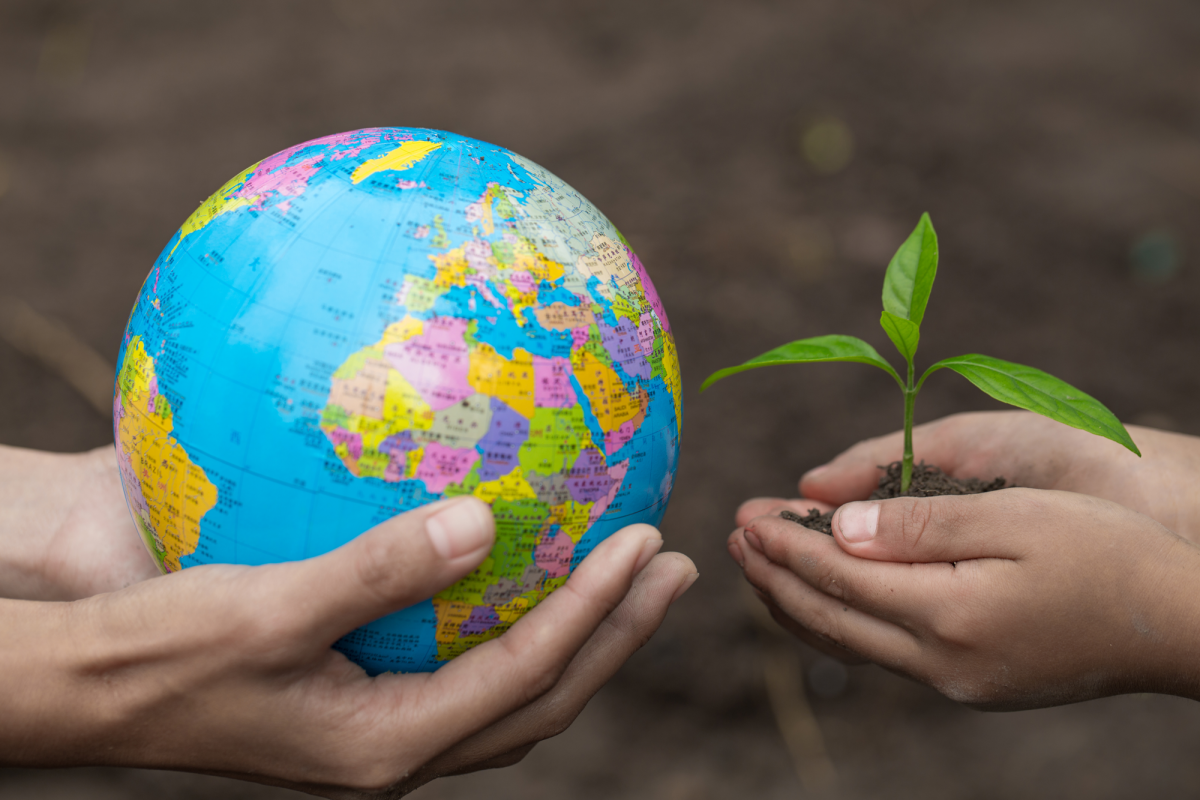UN elevates action on ecosystem restoration – IUCN is ready
The UN Decade on Ecosystem Restoration (2021-2030) was officially adopted by the UN General Assembly. El Salvador, joined by 71 co-sponsors, sets the world on a course to massively scale up the restoration of degraded ecosystems and halt further degradation to fight the climate crisis, enhance food security and water supply, and protect biodiversity. IUCN is already taking steps to meet this challenge.

Photo: IUCN / istock
On March 1, the UN General Assembly proclaimed the UN Decade on Ecosystem Restoration 2021 – 2030. The proposal was led by El Salvador which positioned the restoration of ecosystems as a key nature-based solution to accelerate the achievement of many international conventions and the 2030 Agenda for Sustainable Development. Immediately following the proposal speech to the General Assembly by El Salvador’s Minister of Environment and Natural Resources, Lina Pohl, an impressive list of countries from all latitudes and conditions, expressed support for what will be a path of concerted action and accelerated outcomes in favour of ecosystem restoration. IUCN is proud to have supported the government of El Salvador in advancing this important agenda.
Ecosystem restoration is a process of reversing the degradation of ecosystems, such as landscapes, lakes and oceans to regain their ecological functionality – in other words, to improve the productivity and capacity of ecosystems to meet the needs of society.
El Salvador's leadership on ecosystem restoration stems from its experience as one of a growing list of countries who’ve already pledged to the Bonn Challenge, a global forest landscape restoration goal. Furthermore, El Salvador's 1 million hectare pledge – equivalent to half of its territory – is showcased through its early adoption of the Bonn Challenge Barometer of Progress. By actively participating as one of the six pilot countries in this IUCN-led effort to track implementation of Bonn Challenge pledges, El Salvador has already demonstrated real progress in achieving ecosystem restoration, from assessment of restoration opportunities and promotion of supportive policies to actually bringing land under restoration.
By leveraging its experience and bringing it to a global stage, El Salvador hopes to elevate the value of restoration and kindle the enormous potential of synergistic approaches to global restoration efforts. Through bringing the measure to the floor of the UN General Assembly, they assured that the growing momentum for ecosystem restoration will go well beyond the borders of those already involved.
Ecosystem restoration promoted through this UN Decade takes a multi-functional landscape approach, looking at the mosaic of interdependent land uses in which ecological, economic, social, and development-based priorities can find convergence, balance and complementarity." – Minister Lina Pohl, El Salvador
Where do we go from here?
While the Food and Agriculture Organization of the UN and UN Environment have been tasked with facilitating the delivery of the Decade, every government, community, conservation organisation and private enterprise will play a role in fulfilling its promise. There are already millions of hectares of terrestrial and marine ecosystems under restoration across the globe in support of efforts like the Bonn Challenge and contributing regional initiatives such as afr100 and Initiative 20x20. The stated purpose of the Decade is to reinforce efforts already under way to progress these and other restoration endeavours through financing, capacity building and implementation. This is at the forefront of this Decade – and it will take all of us to truly make an impact.
IUCN, through its work with members and partners around the world for the past 70 years, and in its roles as secretariat of the Bonn Challenge, contributor to Bonn Challenge’s supportive regional restoration initiatives, and as a founder and coordinator of the Global Partnership on Forest and Landscape Restoration (GPFLR), is already deeply entrenched in ecosystem restoration. IUCN’s Nature-based Solutions group is forging inroads on restoration through flagship programmes like The Restoration Initiative, SUSTAIN, Catalysing Private Sector Commitment to the Bonn Challenge and the Global Mangrove Alliance to name a few. When coupled with the application of the Restoration Opportunities Assessment Methodology (ROAM) – the most widely used restoration resource of its kind – and growing experience with restoration policy and capacity building, IUCN is well positioned to support countries with the implementation of this Decade.
Another unique way IUCN will build momentum leading up to the Decade is through its inclusion on the agenda of the 2020 IUCN World Conservation Congress in Marseille, France. This quadrennial gathering of top conservation minds will foster dialog and chart a course for how to best achieve the intentions of the Decade.
The initiative that El Salvador has shown is clearly inspirational as evidenced by the broad and diverse support the Decade garnered in the UN General Assembly. As the world prepares to embrace the Decade on Ecosystem Restoration, IUCN and its members and partners are getting ready to do our part.
The floor of the UN General Assembly during proposal for UN Decade on Ecosystem Restoration
— story by Corbett Nash and Adriana Vidal, IUCN Global Forest and Climate Change Programme



